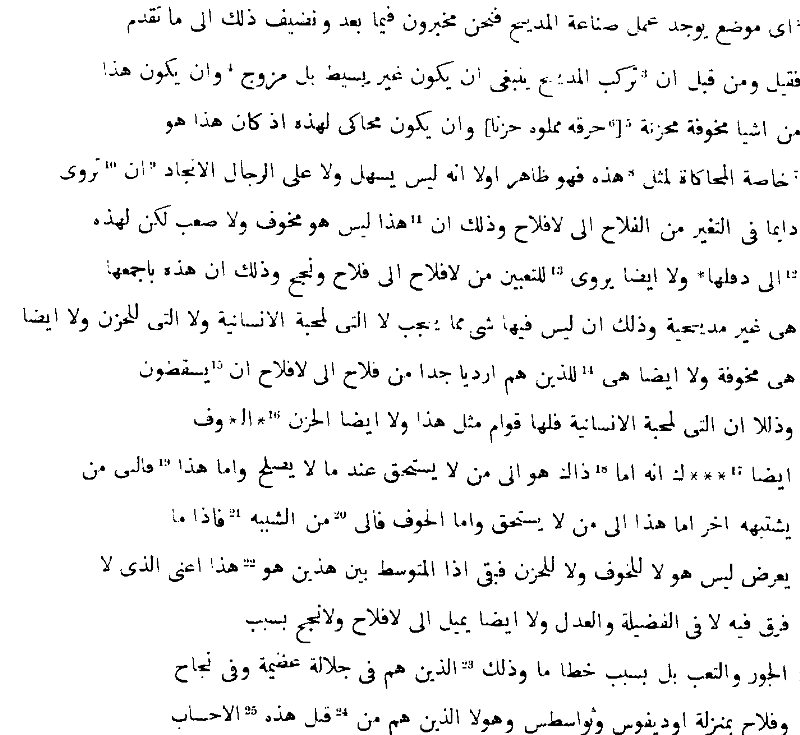Аристотель «Поэтика»: Что вызывает сострадание и страх: лица (1452b30)
Перевод М. Гаспарова
Перевод В. Аппельрота
Итак, остается [человек], находящийся в средине между этими. Таков тот, кто не отличается [особенной] добродетелью и справедливостью и впадает в несчастье не по своей негодности и порочности, но по
Перевод Н. Новосадского
Translated by W.H. Fyfe
There remains then the mean between these. This is the sort of man who is not
Translated by S.H. Butcher
Translated by I. Bywater
The first situation is not
Traduction Ch. Emile Ruelle
III. Reste la situation intermédiaire; c’est celle d’un homme qui n’a rien de supérieur par son mérite ou ses sentiments de justice, et qui ne doit pas à sa perversité et à ses mauvais penchants le malheur qui le frappe, mais plutôt à une certaine erreur qu’il commet pendant qu’il est en pleine gloire et en pleine prospérité; tels, par exemple, Oedipe, Thyeste et d’autres personnages célèbres, issus de familles du même rang.
